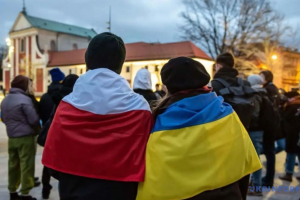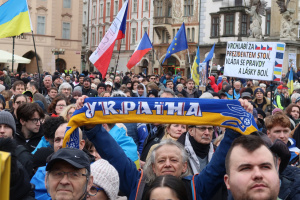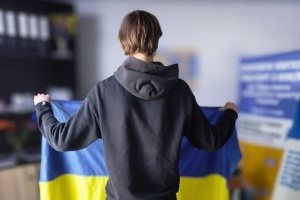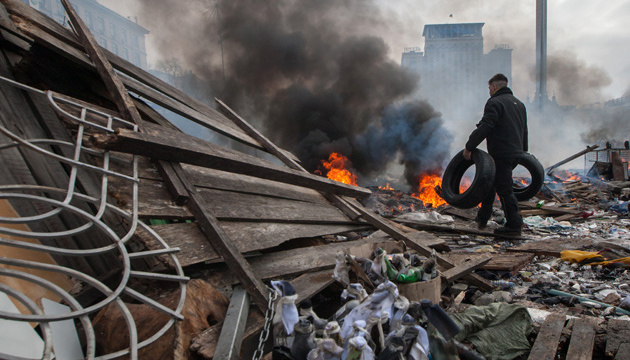
How the Revolution of Dignity changed Ukraine: Ten achievements
Major change is best seen from afar. The same is true of the Revolution of Dignity: its value in the history of Ukraine can only be observed over time. And time does tell that while the events of 2013-2014 were tragic, they were certainly not in vain. They were a big driver of Ukraine’s further development. Now, the most important thing is not to stop.
Over the years, Ukraine has come a long way, launched many reforms and strengthened its position in the world. Centre for Strategic Communication and Information Security has made a list of ten milestones which were made possible by the Revolution of Dignity.
The most striking illustration of what Ukraine has avoided thanks to the Revolution of Dignity is what is happening in Belarus today. For many years, our northern neighbour has served as a tempting showcase of close allied relations with Russia: accept them and get cheap gas, "order" and "stability." What price did Belarus have to pay for these bonuses? First, it led to the marginalization of national culture, language, identity. This was followed by the disappearance of rights and freedoms. Only one thing is clear: the pro-Russian dictatorship has thrown Belarus off a deep end.
The attempt to turn Ukraine into a pro-Russian dictatorship is exactly what Ukrainian society rebelled against in 2013-2014. Revenge for this choice of Ukrainians was Russia's aggression, which continues to this day. However, despite the occupation of part of the territory, terrible human casualties and huge material losses, Ukraine did not break. What is more, it has undergone an impressive transformation in various fields.
Not all hopes and aspirations of Maidan came true. And yet, the well-being of Ukrainians shows profound, radical changes: while in 2012, only a little more than 40% of citizens were proud to be Ukrainian, in 2021, the figure has exceeded 70%. The number has risen quite sharply since 2013.
Return to democracy
The only thing that Viktor Yanukovych had in common with democracy was that he came to power in a democratic way. Afterwards, Yanukovych acted like a textbook novice dictator: expanded his powers as much as possible, threw opponents behind bars, subdued all branches of government, committed fraud in elections, restricted freedom of speech and assembly, used brutal force.
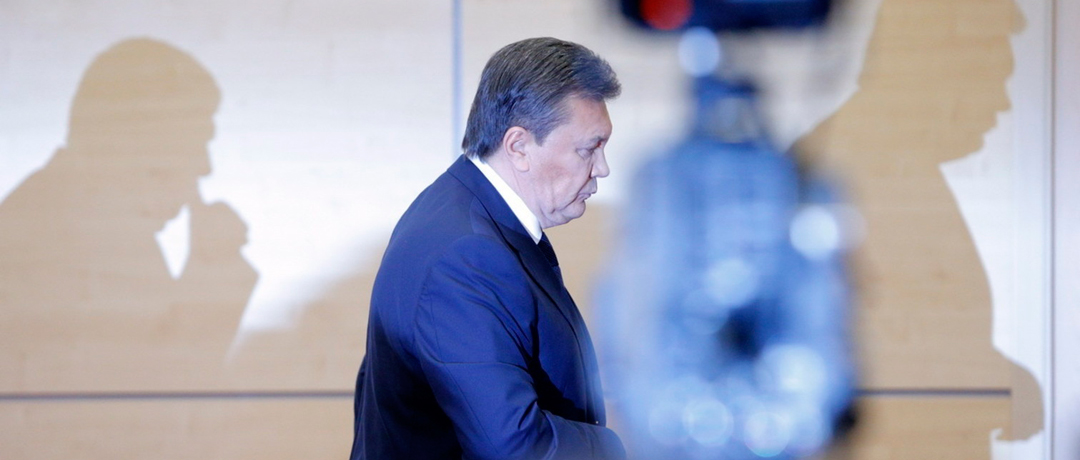
While he did not have time to build an effective authoritarian system, he still tried very hard. There was something in common even with some Latin American dictators—for example, the desire for luxury and his own illegal assault groups to fight their opponents during mass events.
Yanukovych felt like the powers he was granted by the people of Ukraine were not enough. On September 30, 2010, in a short of support of the new government, the Constitutional Court returned the wording of the 1996 Basic Law, approving the presidential-parliamentary form of government instead of the parliamentary-presidential one. Thus, Yanukovych broke the previously built system of checks and balances. Only thanks to Maidan's victory was it possible to return the presidency to the framework set by the 2004 compromise.
Former PACE Co-Rapporteur on Ukraine Hanne Severinsen was struck by the speed of democracy rollback in Ukraine in April 2010, two months after Yanukovych was elected president. In October of that year, experts already talked about Ukraine's transition to a "quasi-monarchy." And in 2012, the international non-governmental human rights organization Freedom House stated that power was centralized in the hands of one family, and that Yanukovych was "Putinising" Ukraine.
Even with all the restrictions stipulated by the need to repel hostile aggression, Ukraine today demonstrates steady democratic progress.
In the 2020 Democracy Index developed by the British think tank The Economic Intelligence Unit had Ukraine on the 79th place out of 167 countries. In 2020, Ukraine's democracy was rated at 5.81, which still leaves it among the countries with a "hybrid regime", but is the best score since 2010.
Strengthening the role of civil society
In the years after the Revolution of Dignity in Ukraine, reforms of the police, education, medicine, gas and banking sectors, pensions, taxes, etc. were carried out with varying degrees of success. Roads are being repaired and built, agriculture and the IT industry are growing dynamically.
"Despite the extremely difficult situation, Ukraine has not collapsed. Instead, it embarked on an ambitious path of structural reforms ... And it has reason to be proud of its achievements. Some of the building blocks of a democratic, mature and prosperous society are already in place, so we remain optimistic that Ukraine will successfully implement the rest of the reform agenda and become a successful country,” concluded VoxUkraine, which works on monitoring and analysis of reform.
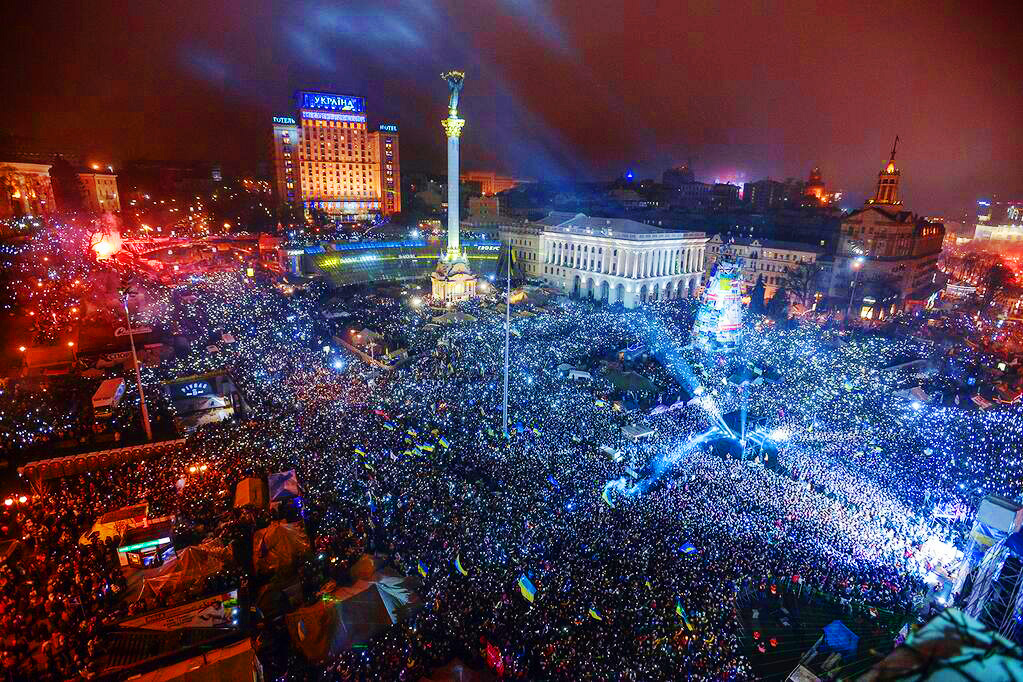
Among the successes, we should point out the formation of a strong civil society, which has been a participant or even an initiator of positive changes in recent years. It influences the agenda of the state, controls the activities of the government, as well as formulates its own reform proposals.
It is also essential that civil society creates a more comfortable living environment for all from the grassroots level. This should be the foundation of a strong state in the European sense of the word.
"There is a feeling of mutual support, readiness to help, get involved in the situation, lend a hand. Despite the fatigue and frustration, despite the difficult situation associated with the war, society does not give up—on the contrary, it seems that it is formed under this pressure, becomes stronger and at the same time—more humane,” said poet and public figure Serhii Zhadan.
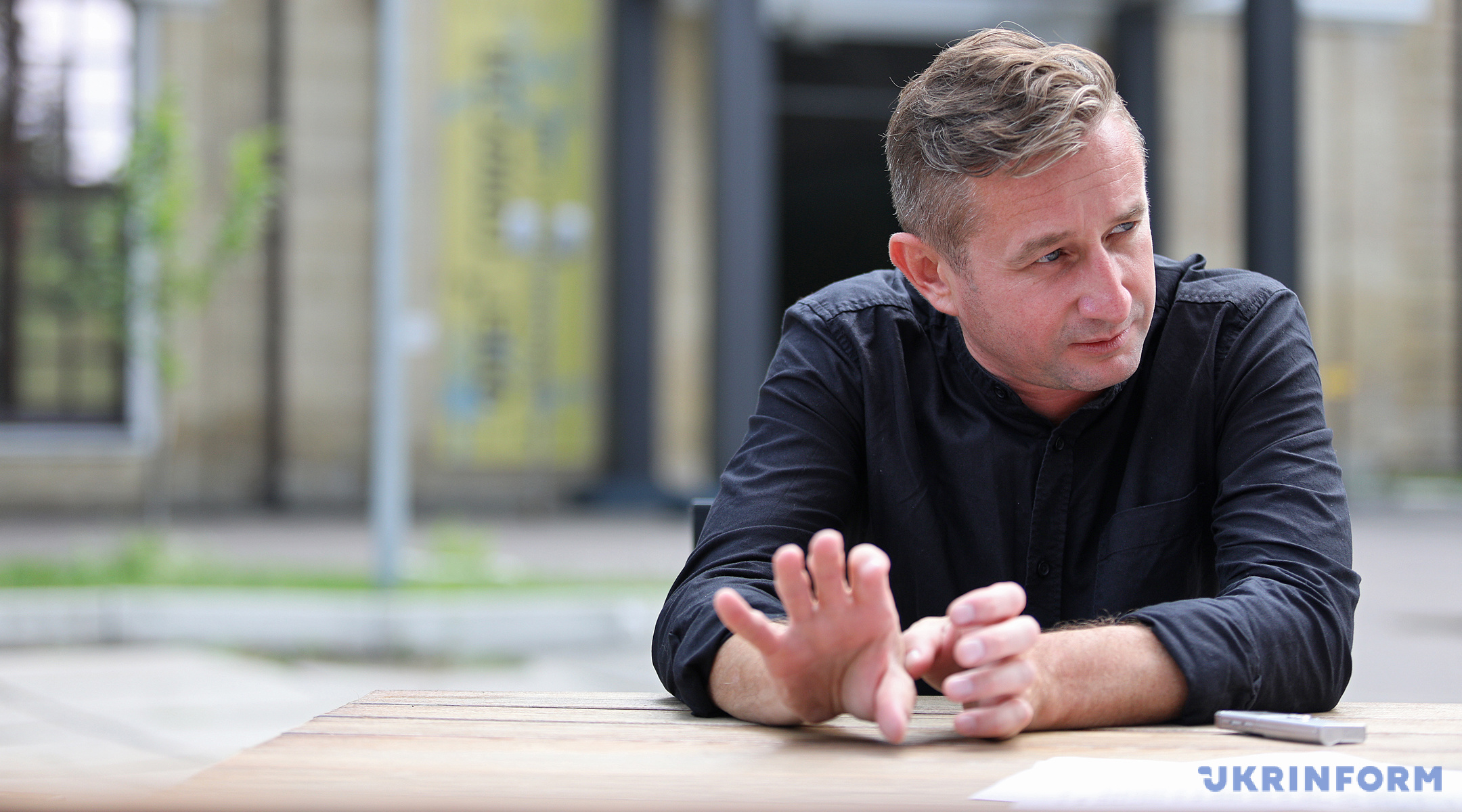
Strengthening national identity
Taking steps towards European integration, Ukraine does not lose its national identity, but rather strengthens it instead.
According to opinion polls, 73% of Ukrainians consider Ukrainian their mother tongue. 53% of Ukrainian citizens speak mostly Ukrainian at home, 29% speak Russian.
66% of Ukrainians believe that the state should promote the further implementation of the law on language in all areas. Support for the law on language prevails in all regions of Ukraine — from 88% in the West to 53% in the South. 2/3 of Ukrainians believe that the share of the Ukrainian language on television should be at least 75%.
“We now have what can probably be called the national cultural policy. The emergence of the Ukrainian Institute and the Book Institute, the activities of the cultural fund, financial support for film production, library support, formatting of TV and radio broadcasting in the interests of our own interests — all of this can pay off,” said poet and public activist Serhiy Zhadan.
Favorable legislation and state support caused a boom in Ukrainian film production. Dozens of Ukrainian films are released every year, with record high attendance and box office.
Decommunization, which led to the removal of monuments to Lenin and other figures of the communist regime, as well as to the renaming of many settlements, streets and other objects of toponymy, can be considered “cultural cleansing.”
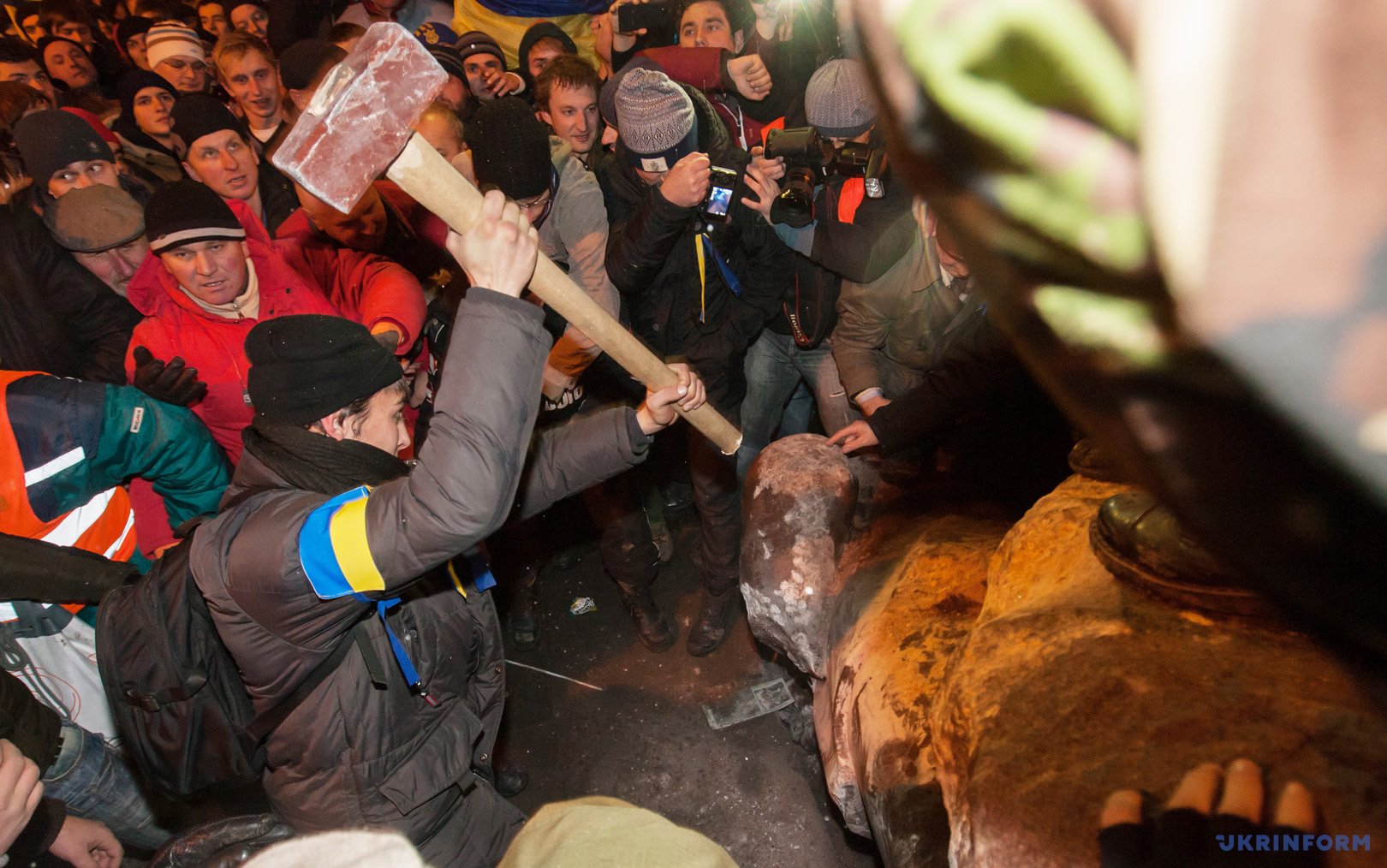
Ukraine strongly supported the Crimean Tatar people, who had survived the horrors of Stalin's deportation and are now under Russian occupation. On March 20, 2014, the parliament recognized the Kurultai as the highest representative body of the Crimean Tatars, and the Mejlis as its executive body. On July 1, 2021, the Law "On Indigenous Peoples of Ukraine" was adopted, which recognizes this status for the Crimean Tatars.
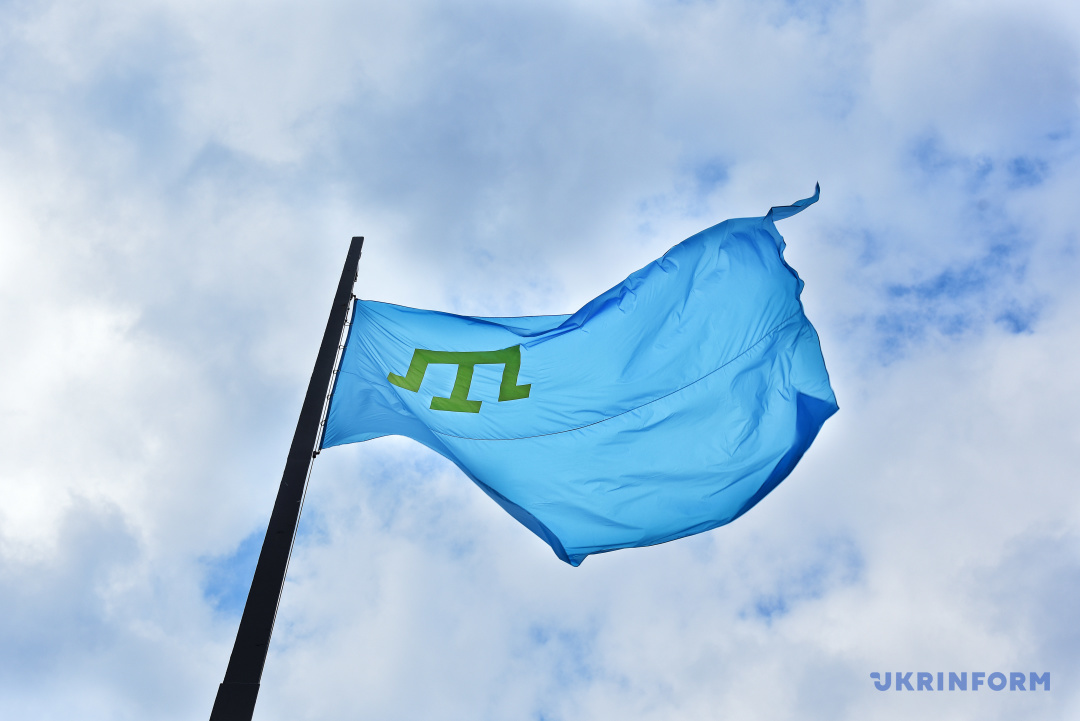
The Orthodox Church of Ukraine has officially lost its dependence on the Moscow Patriarchate, in which it has been for over 300 years. It received a tomos on autocephaly, taking its place in the diptych — the official list of Orthodox autocephalous and autonomous churches.
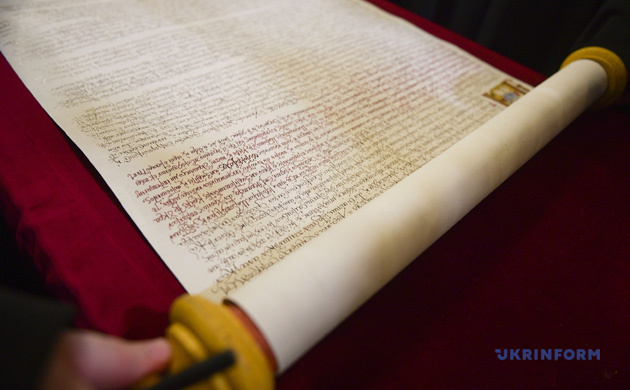
Ability to defend ourselves
It is not of its own volition that Ukraine has to defend its civilizational choice, particularly with weapons. And it knows how to do that.
“At the outbreak of the war in eastern Ukraine in 2014, the Ukrainian army was so poorly equipped that ordinary citizens were knitting socks, donating scrap metal and even crowdfunding a tank for soldiers at the front line,” wrote Reuters.
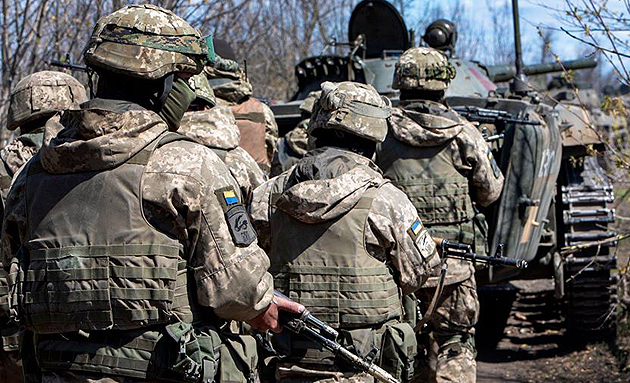
After many years of destructive processes and the loss of a significant amount of equipment in the occupied Crimea and Donbas, the Ukrainian army improved its combat level, received weaponry produced in Ukraine and in the Wet, and ranked 25th in the global military ranking.
Introducing decentralization
The need for the federalization of Ukraine was one of the essential topics of Russian propaganda. Local interests were allegedly not being taken into account in the unitary state. In reality, the Kremlin was talking about the regionalization of Ukraine as a prerequisite for its disintegration. But after the Maidan won, we took a different path — decentralization.
It would seem that Russian aggression, on the contrary, provokes the maximum concentration of power in the centre, the curtailment of community rights and the powers of local administrations. Instead, one of the most remarkable examples of Ukraine’s development as a democratic country based on the rule of law after Maidan was the decentralization reform.
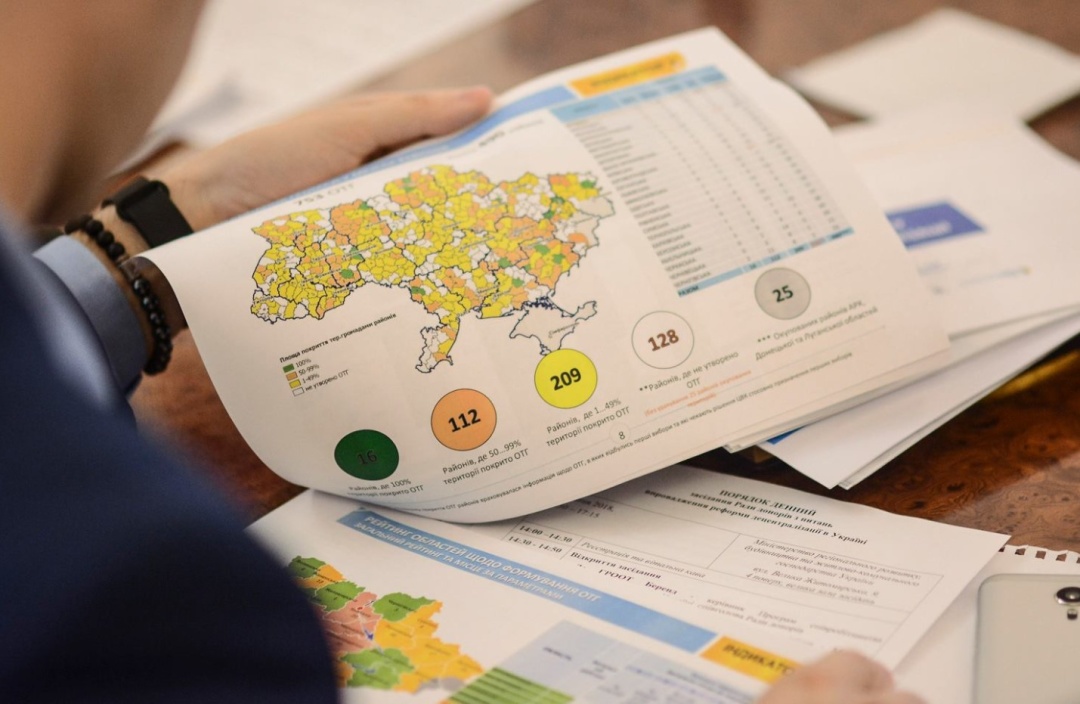
Some fundamental shortcomings in the system of government that existed before the Revolution of Dignity led to the establishment of a highly centralized state, where regional elites exchanged loyalty for higher subsidies from the centre.
The decentralization reform was aimed at changing this system, giving local governments more financial autonomy and more responsibility for the day-to-day problems of their communities. As a result, the responsibility of local governing bodies to the public had to increase.
From 2014 to 2020, local budgets' own revenues quadrupled. In 2018, for the first time, local budgets exceeded the central state budget in total and accounted for 52% of Ukraine's consolidated budget.
Procurement transparency
The public procurement system was considered one of the main sources of corruption and wasteful spending in Ukraine before the Euromaidan. The reform of this sector began in 2014 and introduced a number of legislative and institutional changes, followed by technical modernization and introduction of a new e-procurement system — ProZorro.
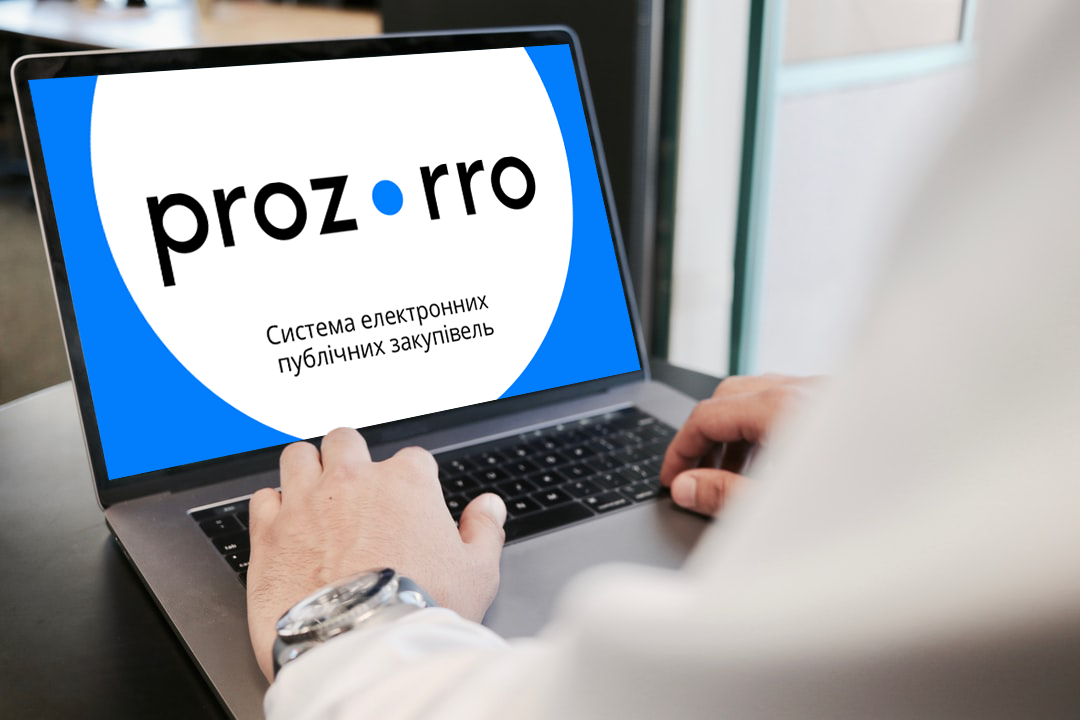
What is special about this reform is that it was initiated, developed and implemented by activists from business and civil society, who managed to create a broad coalition of stakeholders among politicians, the international community and others to put the reform into practice nationwide. The reform set five goals, most of which were achieved.
The new system has reduced opportunities for government corruption. Businesses have received better access to government tenders. The reform has created tools through which civil society and business can hold public procurement accountable.
The ProZorro e-procurement system is recognized as one of the best in the world and has set an example for many countries. Every year, it saves tens of billions for the national budget.
Open data

Electronic declarations of property and income of officials, free access to property and real estate registers, open archives of Soviet security agencies, roll-call votes in local councils, a single portal of public finances, where everyone can see all budget transactions, made Ukraine one of the world leaders in open data.
Return to the European path
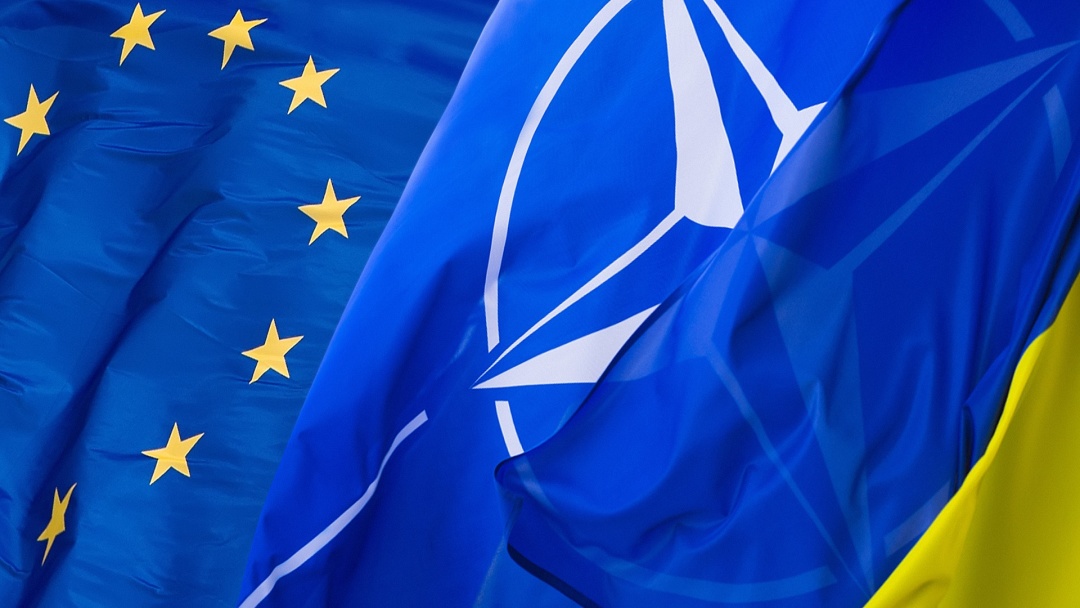
Ukraine has concluded an Association Agreement with the EU, which has determined its civilizational path and opened the world's largest market for Ukrainian goods. By renouncing its non-aligned status, Ukraine has enshrined the course of joining the EU and NATO in the Constitution. For the country as a whole, the transition from the Russian to the European field of influence has become complete and irreversible.
The European Union is now Ukraine's main trading partner. The EU market share in Ukraine's exports is 40% of Ukraine's total trade. Despite the common myth, Ukraine is not a "raw material appendage" of the EU:49% of Ukrainian exports are processed goods.
Europe is the most developed continent in the world. The 10 countries that boast the highest living standards in the world include seven European countries. The EU as a whole is the second richest and second-largest economy in the world, following the United States. Alignment with Europe is alignment with the best.
Big point on global agenda
Ukraine has found itself at the forefront of Putin's war against the entire civilized world, says Yurii Shulipa, director of the International Union “Institute for National Policy.” And its ability to stand up for itself and fight against him has dramatically increased its global significance. Ukraine has begun to have a real influence on international politics. It has become an actor, not merely an object. This is evidenced by the level of international support of our country, the high place of Ukraine on the agenda of the European Union and the United States.
The Ukrainian passport has become strong
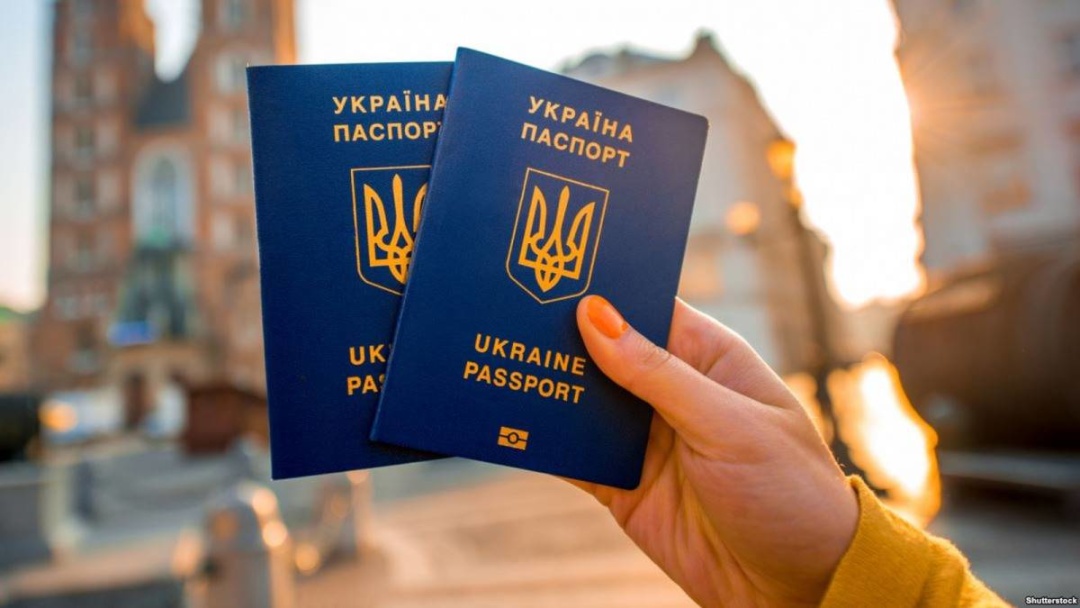
This is the icing on the cake, but it also has to do with Ukraine’s place in the world. Passport power is assessed based on the number of countries that the owner of the passport can enter without a visa. The agreement on visa liberalization between Ukraine and the EU was signed in Strasbourg on May 17, 2017. This event immediately affected Ukraine’s ranking, since soon following the signing, Ukrainians already could enter 46 countries more than before visa-free, the total being 128. Today, the Ukrainian passport allows visa-free travel or travel with visa on arrival to 136 countries across the world. In general, over 10 years, Ukraine almost doubled the number of visa-free destinations.
Revolution of dignity as the price for democracy and freedom
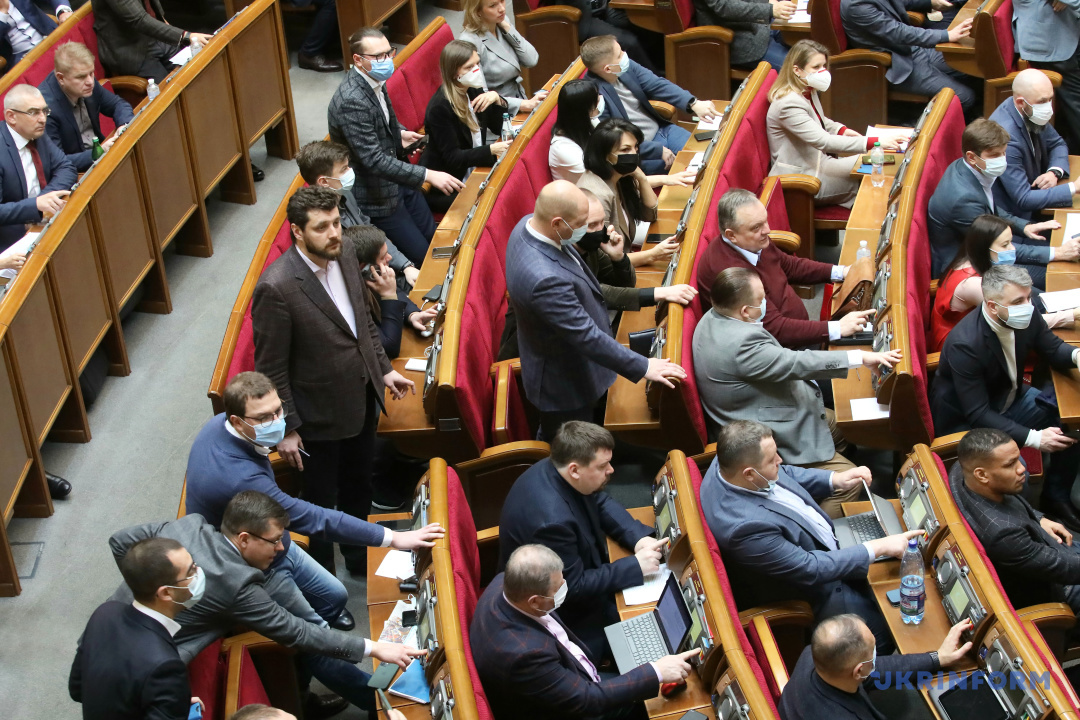
In February this year, the Verkhovna Rada adopted a resolution that established the Revolution of Dignity as one of the key moments in the formation of Ukraine and the expression of the national idea of freedom.
According to this resolution:
Ukraine has paid a high price for liberation from the dictatorship and its choice to be part of Europe. The heroes of the Heavenly Hundred, Ukrainians and foreigners, gave their lives during the Revolution of Dignity, defending the ideals of democracy, human rights and freedoms, the European future.
People, their life and health, honour and dignity, inviolability and security are recognized by the Constitution as the highest social value. Acts of humiliation, which took place in the heart of Ukraine, on Maidan in Kyiv, as well as in other places of the capital and various cities, towns and villages across the country, cannot happen again.
The usurpation of power by one of the branches of state power, a party or an individual official is a completely unacceptable phenomenon, which leads to long-term serious consequences.
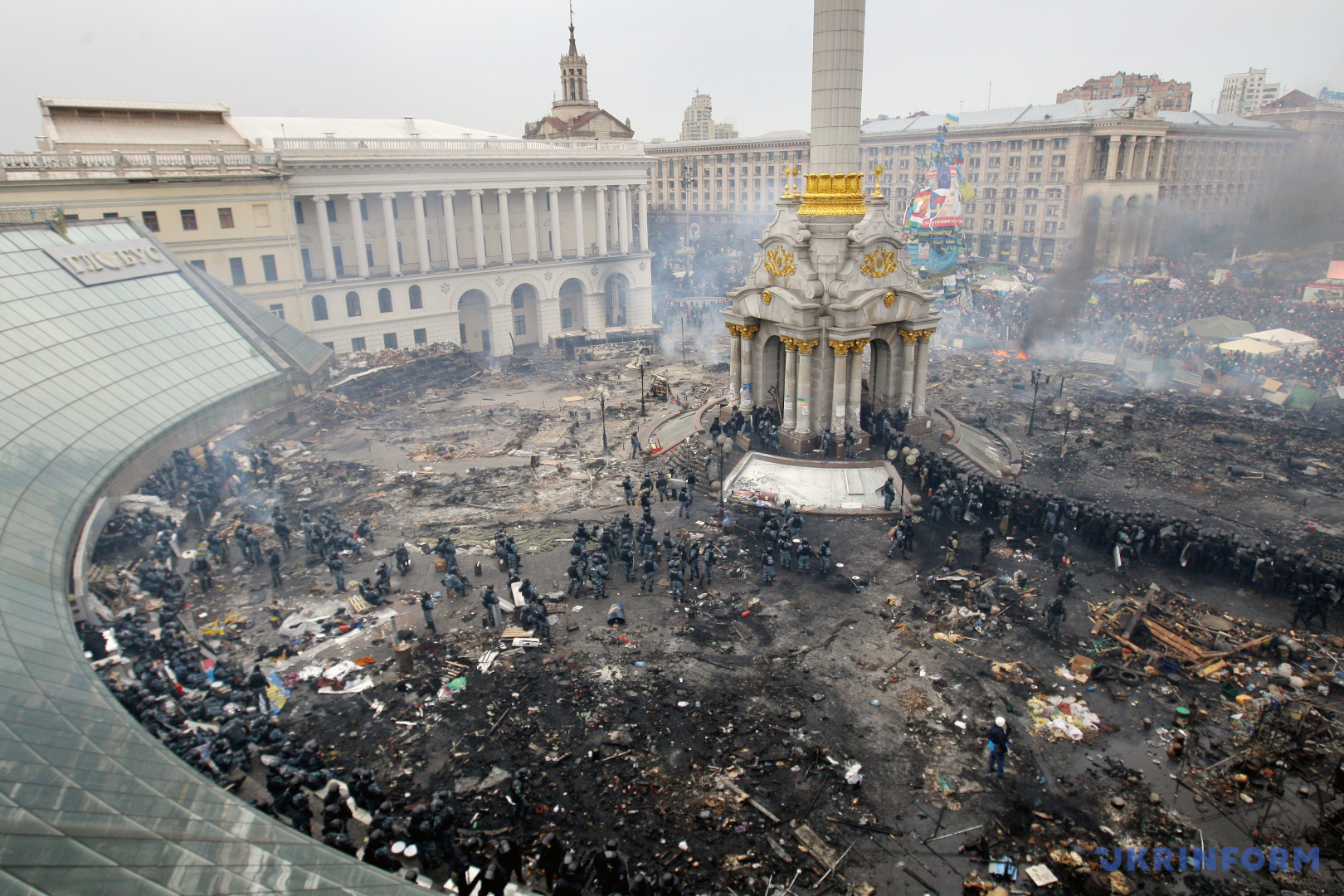
Peaceful assemblies are an extremely effective tool for public scrutiny of the authorities, and the safety of participants in peaceful assemblies of all kinds and forms, including simultaneous counter-assemblies and spontaneous assemblies, as well as their right to express their views, must be protected by the state.
The state or individual officials may not arbitrarily restrict freedom of assembly. Cases where freedom of assembly may be restricted are provided for in the Constitution and cannot be interpreted broadly.
The European values for which the heroes of the Heavenly Hundred gave their lives — dignity, democracy, equality and rule of law — are necessary for the proper functioning of society. The Parliament consistently stands and will stand in favour of affirmation of these values in all spheres of public life.
Center for Strategic Communication and Information Security

